Search
Remove Ads
Advertisement
Search Results
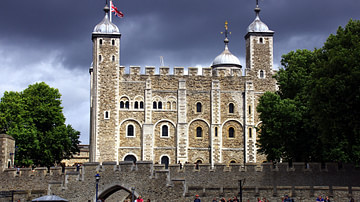
Definition
Tower of London
The Tower of London is a castle located in London alongside the River Thames which was first built by William the Conqueror from c. 1077 and significantly added to over the centuries. Often referred to in England as simply 'the Tower', it...

Definition
Roman Siege Warfare
In ancient warfare open battles were the preferred mode of meeting the enemy, but sometimes, when defenders took a stand within their well-fortified city or military camp, siege warfare became a necessity, despite its high expense in money...

Definition
Castle Keep - The Safest Place in a Medieval Castle
The keep, located within a courtyard and surrounded by a curtain wall, was the heart of a medieval castle. The hall keep was a low building while the tower keep or donjon could have three or more floors and be topped by turrets and battlements...

Article
Siege Warfare in Medieval Europe
Siege tactics were a crucial part of medieval warfare, especially from the 11th century CE when castles became more widespread in Europe and sieges outnumbered pitched battles. Castles and fortified cities offered protection to both the local...
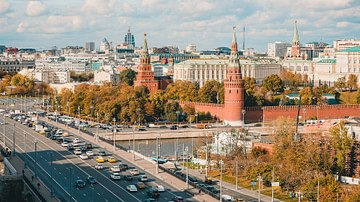
Definition
Kremlin
The Kremlin is a fortified complex located in the centre of Moscow, Russia, which is made up of towers, high walls, palaces, and cathedrals. Construction of the Kremlin began as early as the 12th century. As one of Russia's most famous landmarks...
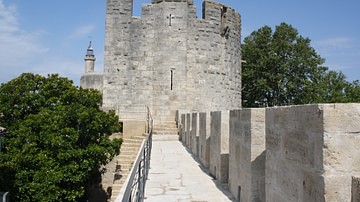
Article
An Illustrated Glossary of Castle Architecture
Alure (Wall Walk) The walkway along the higher and interior part of a wall which often gives access to the higher floors of towers within the wall. Typically protected by battlements. Apse A semicircular projecting part of a building...
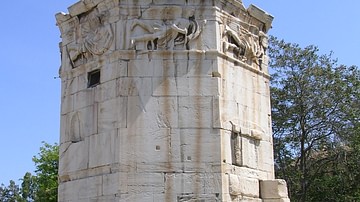
Article
Tower of the Winds
The Tower of the Winds, also known as the Clock of Andronicus Cyrrhestes, is a timekeeping tower on the eastern side of the Roman agora of Athens. Built in the 2nd century BCE, it once had nine sundials and contained a large water clock...
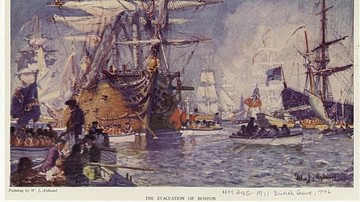
Article
Siege of Boston
The Siege of Boston (19 April 1775 to 17 March 1776) was the first major military operation of the American Revolutionary War (1775-1783). After the first shots were fired at the Battles of Lexington and Concord, American colonial militias...

Article
The Siege of Jerusalem in 70 CE
The Siege of Jerusalem in 70 CE was the high watermark in the First Jewish-Roman War (66-73 CE) regarding the tension between the two forces. With the Roman Empire transitioning from the Julio-Claudian emperors to the Flavian dynasty in the...

Definition
Siege of the Alamo - The "small affair" That Won Texas Independence
The Siege of the Alamo (23 February to 6 March 1836) was an engagement of Texian forces with the Mexican Army, leading up to the Battle of the Alamo on the morning of 6 March 1836. The 13-day siege and battle has become legendary and is among...